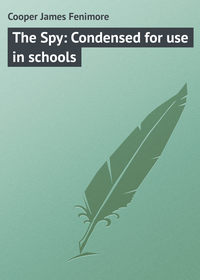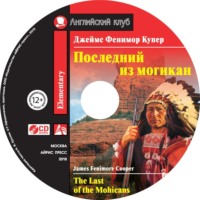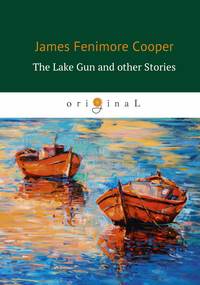 полная версия
полная версияMercedes of Castile: or, The Voyage to Cathay
"First, then, as is due to his all-seeing and omnipotent protection, glory will be given to the Almighty, by the spreading of his church and the increase of his worshippers." Fernando de Talavera and all the churchmen present piously crossed themselves, an act in which Columbus himself joined. "Their Highnesses, as is meet, will reap the next advantages, in the extension of their empire and in the increase of their subjects. Wealth will flow in upon Castile and Aragon, in a rapid stream, His Holiness freely granting to Christian monarchs the thrones and territories of all infidel princes whose possessions may be discovered, or people converted to the faith, through their means."
"This is plausible, Señor," returned the prelate, "and founded on just principles. His Holiness certainly is entrusted with that power, and hath been known to use it, for the glory of God. You doubtless know, Señor Colon, that Don John of Portugal hath paid great attention to these matters already, and that he and his predecessors have probably pushed discovery to the verge of its final limits. His enterprise hath also obtained from Rome certain privileges that may not be meddled with."
"I am not ignorant of the Portuguese enterprise, holy prelate, nor of the spirit with which Don John hath exercised his power. His vessels voyage along the western shore of Africa, and in a direction altogether different from that I propose to take. My purpose is to launch forth, at once, into the broad Atlantic, and by following the sun toward his place of evening retirement, reach the eastern bounds of the Indies, by a road that will lessen the journey many months."
Although the archbishop and most of his coadjutors belonged to the numerous class of those who regarded Columbus as a brain-heated visionary, the earnest, but lofty dignity, with which he thus simply touched upon his projects; the manner in which he quietly smoothed down his white locks, when he had spoken; and the enthusiasm that never failed to kindle in his eye, as he dwelt on his noble designs, produced a deep impression on all present, and there was a moment when the general feeling was to aid him to the extent of the common means. It was a singular and peculiar proof of the existence of this transient feeling that one of the commissioners immediately inquired —
"Do you propose, Señor Colon, to seek the court of Prestor John?"
"I know not, noble Señor, that such a potentate hath even an existence," answered Columbus, whose notions had got the fixed and philosophical bias that is derived from science, and who entered little into the popular fallacies of the day, though necessarily subject to much of the ignorance of the age; "I find nothing to establish the truth of there being such a monarch at all, or such territories."
This admission did not help the navigator's cause; for to affirm that the earth was a sphere, and that Prestor John was a creature of the imagination, was abandoning the marvellous to fall back on demonstration and probabilities – a course that the human mind, in its uncultivated condition, is not fond of taking.
"There are men who will be willing to put faith in the truth of Prestor John's power and territories," interrupted one of the commissioners, who was indebted to his present situation purely to King Ferdinand's policy, "who will flatly deny that the earth is round; since we all know that there are kings, and territories, and Christians, while we see that the earth and the ocean are plains."
This opinion was received with an assenting smile by most present, though Fernando de Talavera had doubts of its justice.
"Señor," answered Columbus, mildly, "if all in this world was in truth what it seemeth, confessions would be little needed, and penance would be much lighter."
"I esteem you a good Christian, Señor Colon," observed the archbishop, sharply.
"I am such as the grace of God and a weak nature have made me, Lord Archbishop; though I humbly trust that when I shall have achieved this great end, that I may be deemed more worthy of the divine protection, as well as of the divine favor."
"It hath been said that thou deemest thyself especially set apart by Providence for this work."
"I feel that within me, holy prelate, that encourageth such a hope; but I build naught on mysteries that exceed my comprehension."
It would be difficult to say whether Columbus lost or gained in the opinions of his auditors, by this answer. The religious feeling of the age was in perfect consonance with the sentiment; but, to the churchmen present, it seemed arrogant in a humble and unknown layman, even to believe it possible that he could be the chosen vessel, when so many who appeared to have higher claims were rejected. Still no expression of this feeling was permitted, for it was then, as it is now – he who seemed to rely on the power of God, carrying with him a weight and an influence that ordinarily checked rebukes.
"You propose to endeavor to reach Cathay by means of sailing forth into the broad Atlantic," resumed the archbishop, "and yet you deny the existence of Prestor John."
"Your pardon, holy prelate – I do propose to reach Cathay and Cipango in the mode you mention, but I do not absolutely deny the existence of the monarch you have named. For the probability of the success of my enterprise, I have already produced my proofs and reasons, which have satisfied many learned churchmen; but evidence is wanting to establish the last."
"And yet Giovanni di Montecorvino, a pious bishop of our holy church, is said to have converted such a prince to the true faith, nearly two centuries since."
"The power of God can do any thing, Lord Archbishop, and I am not one to question the merits of his chosen ministers. All I can answer on this point is, to say that I find no scientific or plausible reasons to justify me in pursuing what may prove to be as deceptive as the light which recedes before the hand that would touch it. As for Cathay and its position and its wonders, we have the better established evidence of the renowned Venetians, Marco and Nicolo Polo, who not only travelled in those territories, but sojourned years at the court of their monarch. But, noble gentlemen, whether there is a Prestor John, or a Cathay, there is certainly a limit to the western side of the Atlantic, and that limit I am ready to seek."
The archbishop betrayed his incredulity in the upward turn of his eyes; but having his commands from those who were accustomed to be obeyed, and knowing that the theory of Columbus had been gravely heard and reported on, years before, at Salamanca, he determined prudently to keep within his proper sphere, and to proceed at once to that into which it was his duty to inquire.
"You have set forth the advantages that you think may be derived to the sovereigns, should your project succeed, Señor," he said, "and truly they are not light, if all your brilliant hopes may be realized; but it now remaineth to know what conditions you reserve for yourself, as the reward of all your risks and many years of anxious labor."
"All that hath been duly considered, illustrious archbishop, and you will find the substance of my wishes set forth in this paper, though many of the smaller provisions will remain to be enumerated."
As Columbus spoke he handed the paper in question to Ferdinand of Talavera. The prelate ran his eyes over it hastily at first, but a second time with more deliberation, and it would be difficult to say whether ridicule or indignation was most strongly expressed in his countenance, as he deridingly threw the document on a table. When this act of contempt was performed, he turned toward Columbus, as if to satisfy himself that the navigator was not mad.
"Art thou serious in demanding these terms, Señor?" he asked sternly, and with a look that would have caused most men, in the humble station of the applicant, to swerve from their purpose.
"Lord Archbishop," answered Columbus, with a dignity that was not easily disturbed, "this matter hath now occupied my mind quite eighteen years. During the whole of this long period I have thought seriously of little else, and it may be said to have engaged my mind sleeping and waking. I saw the truth early and intensely, but every day seems to bring it brighter and brighter before my eyes. I feel a reliance on success, that cometh from dependence on God. I think myself an agent, chosen for the accomplishment of great ends, and ends that will not be decided by the success of this one enterprise. There is more beyond, and I must retain the dignity and the means necessary to accomplish it. I cannot abate, in the smallest degree, the nature or the amount of these conditions."
Although the manner in which these words were uttered lent them weight, the prelate fancied that the mind of the navigator had got to be unsettled by his long contemplation of a single subject. The only things that left any doubt concerning the accuracy of this opinion, were the method and science with which he had often maintained, even in his own presence, the reasonableness of his geographical suppositions; arguments which, though they had failed to convince one bent on believing the projector a visionary, had, nevertheless, greatly puzzled the listener. Still, the demands he had just read seemed so extravagant, that, for a single instant, a sentiment of pity repressed the burst of indignation to which he felt disposed to give vent.
"How like ye, noble lords," he cried, sarcastically, turning to two or three of his fellow-commissioners, who had eagerly seized the paper and were endeavoring to read it, and all at the same moment, "the moderate and modest demands of the Señor Christoval Colon, the celebrated navigator who confounded the Council of Salamanca! Are they not such as becometh their Highnesses to accept on bended knees, and with many thanks?"
"Read them, Lord Archbishop," exclaimed several in a breath. "Let us first know their nature."
"There are many minor conditions that might be granted, as unworthy of discussion," resumed the prelate, taking the paper; "but here are two that must give the sovereigns infinite satisfaction. The Señor Colon actually satisfieth himself with the rank of Admiral and Viceroy over all the countries he may discover; and as for gains, one-tenth – the church's share, my brethren – yea, even one-tenth, one humble tenth of the proceeds and customs, will content him!"
The general murmur that passed among the commissioners, denoted a common dissatisfaction, and at that instant Columbus had not a true supporter in the room.
"Nor is this all, illustrious nobles, and holy priests," continued the archbishop, following up his advantage as soon as he believed his auditors ready to hear him – "nor is this all; lest these high dignities should weary their Highnesses' shoulders, and those of their royal progeny, the liberal Genoese actually consenteth to transmit them to his own posterity, in all time to come; converting the kingdom of Cathay into a realm for the uses of the house of Colon, to maintain the dignity of which, the tenth of all the benefits are to be consigned to its especial care!"
There would have been an open laugh at this sally, had not the noble bearing of Columbus checked its indulgence; and even Ferdinand of Talavera, under the stern rebuke of an eye and mien that carried with them a grave authority, began to think he had gone too far.
"Your pardon, Señor Colon," he immediately and more courteously added; "but your conditions sounded so lofty that they have quite taken me by surprise. You cannot seriously mean to maintain them?"
"Not one jot will I abate, Lord Priest: that much will be my due; and he that consenteth to less than he deserveth, becometh an instrument of his own humiliation. I shall give to the sovereigns an empire that will far exceed in value all their other possessions, and I claim my reward. I tell you, moreover, reverend prelate, that there is much in reserve, and that these conditions will be needed to fulfil the future."
"These are truly modest proposals for a nameless Genoese!" exclaimed one of the courtiers, who had been gradually swelling with disgust and contempt. "The Señor Colon will be certain of commanding in the service of their Highnesses, and if nothing is done he will have that high honor without cost; whereas, should this most improbable scheme lead to any benefits, he will become a vice-king, humbly contenting himself with the church's revenue!"
This remark appeared to determine the wavering, and the commissioners rose, in a body, as if the matter were thought to be unworthy of further discussion. With the view to preserve at least the appearance of impartiality and discretion, however, the archbishop turned once more toward Columbus, and now, certain of obtaining his ends, he spoke to him in milder tones.
"For the last time, Señor," he said, "I ask if you still insist on these unheard-of terms?"
"On them, and on no other," said Columbus, firmly. "I know the magnitude of the services I shall perform, and will not degrade them – will in no manner lessen their dignity, by accepting aught else. But, Lord Archbishop, and you, too, noble Señor, that treateth my claims so lightly, I am ready to add to the risk of person, life, and name, that of gold. I will furnish one-eighth of the needful sums, if ye will increase my benefits in that proportion."
"Enough, enough," returned the prelate, preparing to quit the room; "we will make our report to the sovereigns, this instant, and thou shalt speedily know their pleasure."
Thus terminated the conference. The courtiers left the room, conversing earnestly among themselves, like men who did not care to repress their indignation; while Columbus, filled with the noble character of his own designs, disappeared in another direction, with the bearing of one whose self-respect was not to be lessened by clamor, and who appreciated ignorance and narrowness of views too justly to suffer them to change his own high purposes.
Ferdinand of Talavera was as good as his word. He was the queen's confessor, and, in virtue of that holy office, had at all times access to her presence. Full of the subject of the late interview, he took his way directly to the private apartments of the queen, and, as a matter of course, was at once admitted. Isabella heard his representations with mortification and regret, for she had begun to set her heart on the sailing of this extraordinary expedition. But the influence of the archbishop was very great, for his royal penitent knew the sincerity and devotedness of his heart.
"This carrieth presumption to insolence, Señora," continued the irritated churchman; "have we not here a mendicant adventurer demanding honors and authority that belong only to God and his anointed, the princes of the earth? Who is this Colon? – a nameless Genoese, without rank, services, or modesty, and yet doth he carry his pretensions to a height that might cause even a Guzman to hesitate."
"He is a good Christian, holy prelate," Isabella meekly answered, "and seemeth to delight in the service and glory of God, and to wish to favor the extension of his visible and Catholic church."
"True, Señora, and yet may there be deceit in this" —
"Nay, Lord Archbishop, I do not think that deceit is the man's failing, for franker speech and more manly bearing it is not usual to see, even in the most powerful. He hath solicited us for years, and yet no act of meanness may be fairly laid to his charge."
"I shall not judge the heart of this man harshly, Doña Isabella, but we may judge of his actions and his pretensions, and how far they may be suitable to the dignity of the two crowns, freely and without censure. I confess him grave, and plausible, and light of neither discourse nor manner, virtues certainly, as the world moveth in courts" – Isabella smiled, but she said nothing, for her ghostly counsellor was wont to rebuke with freedom, and she to listen with humility – "where the age is not exhibiting its purest models of sobriety of thought and devotion, but even these may exist without the spirit that shall be fitted for heaven. But what are gravity and decorum, if sustained by an inflated pride and inordinate rapacity? ambition being a term too lofty for such a craving. Reflect, Señora, on the full nature of these demands. This Colon requireth to be established, forever, in the high state of a substitute for a king, not only for his own person, but for those of his descendants throughout all time, with the title and authority of Admiral over all adjacent seas, should he discover any of the lands he so much exalts, before he will consent to enter into the command of certain of Your Highnesses' vessels, a station of itself only too honorable for one of so little note! Should his most extravagant pretensions be realized – and the probabilities are that they will entirely fail – his demands would exceed his services; whereas, in the case of failure, the Castilian and Aragonese names would be covered with ridicule, and a sore disrespect would befal the royal dignity for having been thus duped by an adventurer. Much of the glory of this late conquest would be tarnished, by a mistake so unfortunate."
"Daughter-Marchioness," observed the queen, turning toward the faithful, and long-tried friend who was occupied with her needle near her own side – "these conditions of Colon do, truly, seem to exceed the bounds of reason."
"The enterprise also exceedeth all the usual bounds of risks and adventures, Señora," was the steady reply of Doña Beatriz, as she glanced toward the countenance of Mercedes. "Noble efforts deserve noble rewards."
The eye of Isabella followed the glance of her friend, and it remained fixed for some time on the pale, anxious features of her favorite's ward. The beautiful girl herself was unconscious of the attention she excited; but one who knew her secret might easily detect the intense feeling with which she awaited the issue. The opinions of her confessor had seemed so reasonable, that Isabella was on the point of assenting to the report of the commissioners, and of abandoning altogether the secret hopes and expectations she had begun to couple with the success of the navigator's schemes, when a gentler feeling, one that belonged peculiarly to her own feminine heart, interposed to give the mariner another chance. It is seldom that woman is dead to the sympathies connected with the affections, and the wishes that sprang from the love of Mercedes de Valverde were the active cause of the decision that the Queen of Castile came to at that critical moment.
"We must be neither harsh nor hasty with this Genoese, Lord Archbishop," she said, turning again to the prelate. "He hath the virtues of devoutness and fair-dealing, and these are qualities that sovereigns learn to prize. His demands no doubt have become somewhat exaggerated by long brooding, in his thoughts, on a favorite and great scheme; but kind words and reason may yet lead him to more moderation. Let him, then, be tried with propositions of our own, and doubtless, his necessities, if not a sense of justice, will cause him to accept them. The viceroyalty doth, indeed, exceed the usual policy of princes, and, as you say, holy prelate, the tenth is the church's share; but the admiral's rank may be fairly claimed. Meet him, then, with these moderated proposals, and substitute a fifteenth for a tenth; let him be a viceroy in his own person, during the pleasure of Don Fernando and myself, but let him relinquish the claim for his posterity."
Fernando de Talavera thought even these concessions too considerable, but, while he exercised his sacred office with a high authority, he too well knew the character of Isabella to presume to dispute an order she had once issued, although it was in her own mild and feminine manner. After receiving a few more instructions, therefore, and obtaining the counsel of the king, who was at work in an adjoining cabinet, the prelate went to execute this new commission.
Two or three days now passed before the subject was finally disposed of, and Isabella was again seated in the domestic circle, when admission was once more demanded in behalf of her confessor. The archbishop entered with a flushed face, and his whole appearance was so disturbed that it must have been observed by the most indifferent person.
"How now, holy archbishop," – demanded Isabella – "doth thy new flock vex thy spirit, and is it so very hard to deal with an infidel?"
"'Tis naught of that, Señora – 'tis naught relating to my new people. I find even the followers of the false prophet more reasonable than some who exult in Christ's name and favor. This Colon is a madman, and better fitted to become a saint in Mussulmans' eyes, than even a pilot in Your Highness' service."
At this burst of indignation, the queen, the Marchioness of Moya, and Doña Mercedes de Valverde, simultaneously dropped their needle-work, and sat looking at the prelate, with a common concern. They had all hoped that the difficulties which stood in the way of a favorable termination to the negotiation would be removed, and that the time was at hand, when the being who, in spite of the boldness and unusual character of his projects, had succeeded in so signally commanding their respect, and in interesting their feelings, was about to depart, and to furnish a practical solution to problems that had as much puzzled their reasons as they had excited their curiosity. But here was something like a sudden and unlooked-for termination to all their expectations; and while Mercedes felt something like despair chilling her heart, the queen and Doña Beatriz were both displeased.
"Didst thou duly explain to Señor Colon, the nature of our proposals, Lord Archbishop?" the former asked, with more severity of manner than she was accustomed to betray; "and doth he still insist on the pretensions to a vice-regal power, and on the offensive condition in behalf of his posterity?"
"Even so, Your Highness; were it Isabella of Castile treating with Henry of England or Louis of France, the starving Genoese could not hold higher terms or more inflexible conditions. He abateth nothing. The man deemeth himself chosen of God, to answer certain ends, and his language and conditions are such as one who felt a holy impulse to his course, could scarcely feel warranted in assuming."
"This constancy hath its merit," observed the queen; "but there is a limit to concession. I shall urge no more in the navigator's favor, but leave him to the fortune that naturally followeth self-exaltation and all extravagance of demand."
This speech apparently sealed the fate of Columbus in Castile. The archbishop was appeased, and, first holding a short private conference with his royal penitent, he left the room. Shortly after, Christoval Colon, as he was called by the Spaniards – Columbus, as he styled himself in later life – received, for a definite answer, the information that his conditions were rejected, and that the negotiation for the projected voyage to the Indies was finally at an end.
CHAPTER VIII
"Oh! ever thus, from childhood's hour,I've seen my fondest hopes decay;I never loved a tree or flower,But 'twas the first to fade away."Lalla Rookh.The season had now advanced to the first days of February, and, in that low latitude, the weather was becoming genial and spring-like. On the morning succeeding that of the interview just related, some six or eight individuals, attracted by the loveliness of the day, and induced morally by a higher motive, were assembled before the door of one of those low dwellings of Santa Fé that had been erected for the accommodation of the conquering army. Most of these persons were grave Spaniards of a certain age, though young Luis de Bobadilla was also there, and the tall, dignified form of Columbus was in the group. The latter was equipped for the road, and a stout, serviceable Andalusian mule stood ready to receive its burden, near at hand. A charger was by the side of the mule, showing that the rider of the last was about to have company. Among the Spaniards were Alonzo de Quintanilla, the accountant-general of Castile, a firm friend of the navigator, and Luis de St. Angel, the receiver of the ecclesiastical revenues of Aragon, who was one of the firmest converts that Columbus had made to the philosophical accuracy of his opinions and to the truth of his vast conceptions.
The two last had been in earnest discourse with the navigator, but the discussion had closed, and Señor de St. Angel, a man of generous feelings and ardent imagination, was just expressing himself warmly, in the following words —









